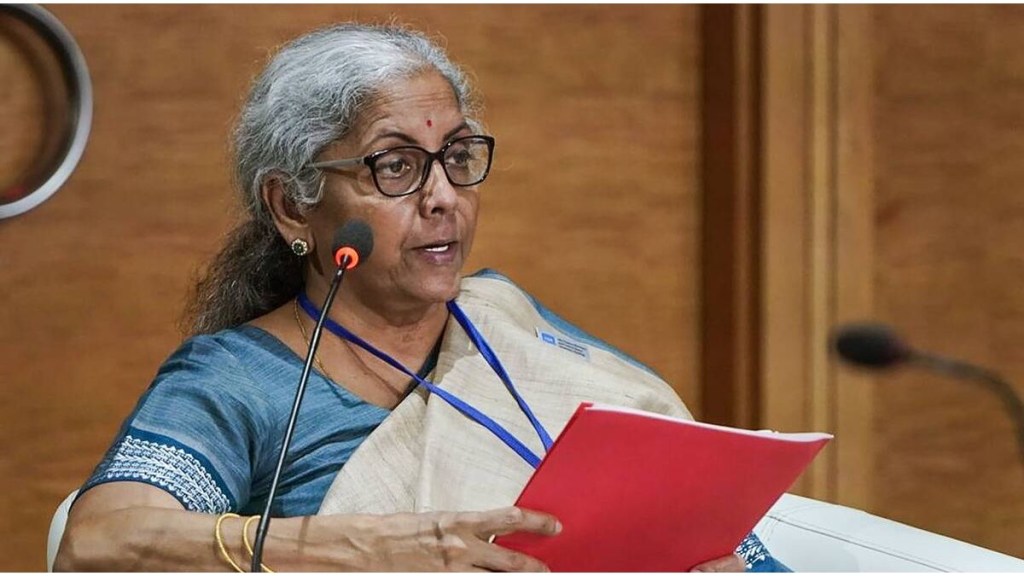Finance minister Nirmala Sitharaman on Tuesday said existing institutions and Constitutional provisions have helped steer the economy amid challenges as well as manage Centre-State fiscal relations, stopping short of endorsing the setting up of an independent fiscal council.
”I find a very powerful case is made for a Fiscal Council, which is not new to this book,” Sitharaman said at an event marking the release of the book “Racalibrate: Changing Paradigms” authored by 15th Finance Commission chairman NK Singh with select insights by P K Mishra, principal adviser to the prime minister. In the book, Singh argues for such a Council to keep a check on Centre and state finances.
“Singh speaks on the need for the GST Council and the Finance Commission to have better coordination through another institution. GST is just born, five years old. I don’t know whether it’s still completely accomplished on very many things which are committed,” Sitharaman said.
Also Read| If FM doesn’t see ‘red’ now, she does not represent average family: P Chidambaram on retail inflation
”India is a country with established traditions and has a lot of institutional strength. Some institutions are very vibrant and some are probably less vibrant. Institutions will have to be rejuvenated periodically,” she said.
The Fiscal Responsibility and Budget Management (FRBM) panel headed by Singh, which submitted its report in January 2017, had also suggested that an independent Fiscal Council be set up consisting of experts to advise and assess the fiscal and spending policy. Besides the 15th FC, the 14th FC and the 13th FC had also recommended such a body. However, it has so far not found favour with the Centre.
“During the pandemic and with good guidance from the entire Cabinet secretariat, PMO, finance ministry, the 15th Finance Commission…a lot of interaction happened. This pandemic stands before us as an example, not just for us but the world over there is a recognition that India managed to come out of (the pandemic),” Sitharaman said.
Older institutions which got activated during the pandemic, and the powers vested in the Constitution which are invoked by the finance ministry are there for all to see as to how India has effectively used them and continues to use them to get the economy on its toes, she said.
“So, I just want to flag this debate about newer institutions, which will have to start the trial of standing up to challenges.”
“(Singh) comes up with a lot of ideas on how fiscal management should happen, and he has looked at the Finance Commission awards, about regulating states’ borrowing and about the mechanism which is available now… he has gently waded in but carefully stayed there but not gone into a discourse on freebies,” the minister said. She agreed with Singh that more debate is required over ‘freebies’ and all subsidies must be provided transparently through the budget.
Also Read| Many countries interested in bilateral rupee trade, says FM Nirmala Sitharaman
The Centre has reduced states’ net borrowing ceiling (NBC) by about RS 41,000 crore for FY23 as it tightened norms to prevent fiscal indiscipline by states resorting to debt through parastatal bodies to fund government schemes. States can’t borrow beyond the annual limits set by the central government under Article 293(3) of the Constitution.
As per the latest available information for FY23, the general government fiscal deficit and debt are expected to moderate to around 9% and 85% of GDP, respectively, from the peak levels of 13.3% and 89.4% in FY21, respectively.
The FRBM panel had suggested a ceiling for general government debt (both centre and states) of 60% of GDP by FY23. And within this overall limit, a ceiling of 40% should be adopted for the Centre, and 20% for the states.

